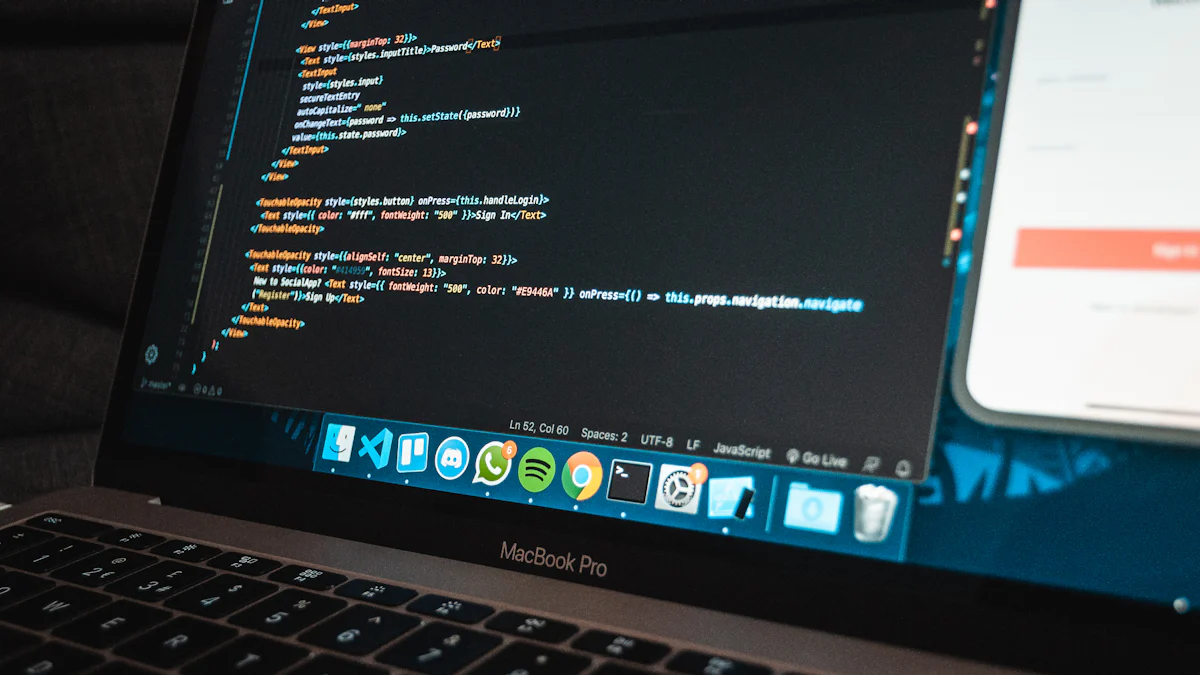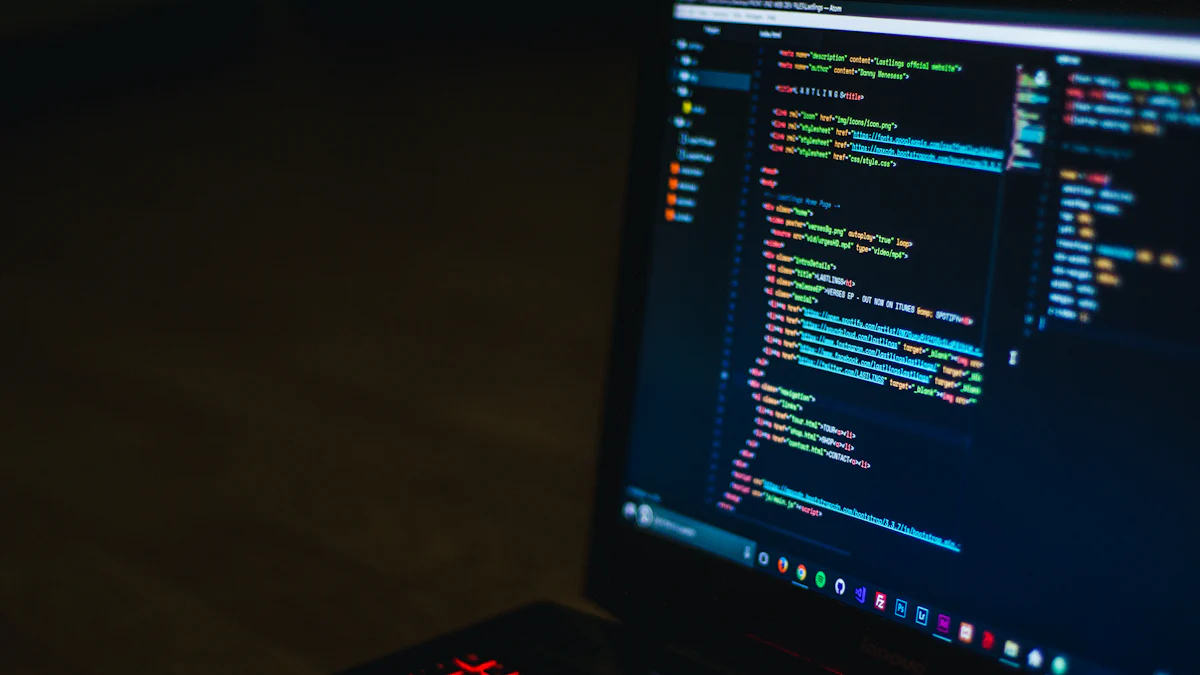How to Prepare for Live Coding Interviews on Zoom in 2025
Try Aihirely for
Smarter Interview Prep
Experience real-time AI support tailored to your Resume.
Boost your confidence and ace every question with
AI Mock Interview.

Image Source: unsplash
Preparing for a zoom live coding interview can feel overwhelming, but it doesn’t have to be. Many candidates struggle with communication due to the lack of visual cues, while others find the stress of coding under observation intimidating. Nervousness and technical issues, like poor internet connectivity, can also derail your performance. Thorough preparation is your best defense. Practice coding challenges on platforms like LeetCode or Codewars, and align your preparation with the company’s values. By focusing on technical setup, clear communication, and stress management, you’ll boost your confidence and improve your chances of success.
Key Takeaways
-
Pick a coding platform you know well for the interview. This lets you focus on solving problems, not learning the tool.
-
Practice coding on sites like LeetCode or HackerRank. This boosts your confidence and gets you ready for real questions.
-
Share your thinking clearly during the interview. Explain your steps so the interviewer understands your ideas.
-
Check your equipment before the interview. Make sure your internet, camera, and microphone work to avoid problems.
-
Practice mock interviews with friends or mentors. This helps you feel comfortable and less nervous about the format.
Technical Preparation for a Zoom Live Coding Interview

Image Source: pexels
Setting Up Your Environment
Choosing the right IDE or coding platform
Picking the right tools can make or break your interview experience. Start by selecting an IDE or coding platform that you’re comfortable with. Many companies use platforms like CodeSignal, HackerRank, or CoderPad for their interviews. These tools often include real-time collaboration features, so both you and the interviewer can work on the same code simultaneously. If the company doesn’t specify a platform, stick to one you know well. Familiarity will help you focus on solving the problem instead of fumbling with the interface.
Ensuring Zoom is installed, updated, and configured
Before your zoom live coding interview, double-check that Zoom is installed and updated to the latest version. Outdated software can cause glitches at the worst possible moment. Test your audio and video settings to ensure everything works smoothly. If you’re unfamiliar with Zoom, spend some time exploring its features, like screen sharing and annotation tools. These will likely come in handy during the interview.
Practicing on Relevant Platforms
Familiarizing yourself with platforms like LeetCode, HackerRank, or CodeSignal
Practice coding problems on platforms like LeetCode, HackerRank, or CodeSignal. These sites offer a wide range of challenges that mimic real interview questions. They also help you get comfortable with the coding environment you might encounter during the interview.
Simulating coding sessions with Zoom to replicate interview conditions
Set up mock interviews with a friend or mentor using Zoom. Share your screen and solve problems while explaining your thought process. This practice will help you get used to coding under observation and using Zoom’s tools effectively.
Testing Your Equipment
Checking your internet connection, webcam, and microphone
A stable internet connection is non-negotiable for a zoom live coding interview. Test your connection speed and ensure your webcam and microphone are functioning properly. If your laptop camera isn’t reliable, consider using your phone as a backup.
Ensuring proper lighting and a distraction-free environment
Good lighting ensures the interviewer can see you clearly. Position yourself in a quiet, well-lit space where you won’t be interrupted. Remove potential distractions, like pets or noisy devices, to maintain a professional atmosphere.
Communication Strategies for Zoom Live Coding Interviews
Narrating Your Thought Process
Explaining your approach step-by-step
Talking through your thought process is one of the most important parts of a zoom live coding interview. Start by breaking the problem into smaller steps and explaining each one as you go. For example, if you’re solving a sorting problem, you could say, “First, I’ll check if the input is empty. Then, I’ll decide which sorting algorithm to use based on the input size.” This helps the interviewer follow your logic and understand your approach.
Using clear and concise language to articulate your logic
Keep your explanations simple and to the point. Avoid overloading your sentences with technical jargon. Instead, focus on clarity. For instance, instead of saying, “I’ll iterate through the array using a nested loop,” you could say, “I’ll go through each element in the array and compare it with the others to find duplicates.” Clear communication shows that you can explain complex ideas in an understandable way.
Asking Clarifying Questions
Understanding the problem requirements and constraints
Don’t hesitate to ask questions if something isn’t clear. This shows you’re thorough and want to fully understand the problem. Some useful questions include:
-
Should I consider very large inputs?
-
Are there specific time or space complexity requirements?
These questions help you avoid mistakes and align your solution with the interviewer’s expectations.
Confirming edge cases and expected outputs
Always confirm edge cases and outputs before diving into the code. For example, ask, “How should the function behave with empty inputs?” or “What should the function return if the input is invalid?” This ensures you’re solving the right problem and considering all scenarios.
Collaborating with the Interviewer
Responding to hints and feedback constructively
If the interviewer offers hints or feedback, take it as an opportunity to improve. Acknowledge their input with a simple “That’s a good point” or “Thanks for pointing that out.” Then, adjust your approach accordingly. This shows you’re open to learning and can adapt quickly.
Maintaining a professional and positive tone throughout
Keep your tone friendly and professional, even if you’re feeling stressed. A positive attitude can make a big difference. It helps the interviewer see you as someone who’s easy to work with. Remember, they’re not just evaluating your coding skills—they’re also assessing how you handle challenges.
Pro Tip: Transparency is key. If you’re stuck, let the interviewer know what you’re thinking. Saying, “I’m considering two approaches, but I’m unsure which is more efficient,” invites collaboration and shows you’re actively problem-solving.
Problem-Solving Techniques for Success
Breaking Down the Problem
Identifying inputs, outputs, and constraints
Start by clarifying the problem’s inputs, outputs, and constraints. Ask yourself, “What data will I receive? What should the result look like? Are there any rules I need to follow?” For example, if you’re solving a problem about sorting, you might need to know if the input can include duplicates or if the output must be in ascending order. This step ensures you fully understand the problem before diving into the solution.
Dividing the problem into smaller, manageable parts
Breaking a complex problem into smaller tasks makes it less intimidating. Use strategies like:
-
Divide and Conquer: Split the problem into sub-problems, solve each one, and combine the results.
-
Start with a Brute Force Solution: Begin with a straightforward approach to understand the problem better.
-
Solve a Simpler Version First: Simplify the problem and build up to the full solution.
-
Use Concrete Examples: Test specific inputs to identify patterns or edge cases.
-
Look for Patterns or Symmetry: Spot recurring structures that can simplify your logic.
-
Work Backwards: Start from the desired output and trace back to the inputs.
These techniques help you stay organized and focused during your zoom live coding interview.
Writing Clean and Testable Code
Using meaningful variable names and comments
Readable code is essential. Use descriptive variable names like sortedList instead of vague ones like x. Add comments to explain tricky parts of your code. For instance, write // Check if the array is empty before a conditional statement. This makes your code easier to understand and debug.
Testing your code with sample inputs and edge cases
Always test your solution with a variety of inputs. Start with simple cases to confirm your logic works. Then, move on to edge cases, like empty arrays or extremely large inputs. Testing shows the interviewer you’ve thought through the problem thoroughly.
Optimizing Your Solution
Analyzing time and space complexity
Once your code works, analyze its efficiency. Think about how the solution scales with larger inputs. For example, does it run in linear time (O(n)) or quadratic time (O(n^2))? Use this analysis to identify bottlenecks. Knowing the complexities of common data structures and algorithms can help you make informed decisions.
Discussing potential improvements with the interviewer
If there’s room for optimization, share your ideas with the interviewer. For instance, you might say, “This solution works in O(n^2) time, but I could use a hash map to reduce it to O(n).” Even if you don’t implement the improvement, discussing it shows you’re thinking critically about efficiency.
Pro Tip: Don’t aim for perfection on the first try. Start with a working solution, then refine it step by step. This approach demonstrates your problem-solving process and adaptability.
Managing Stress During a Zoom Live Coding Interview

Image Source: pexels
Practicing with Mock Interviews
Simulating real interview conditions with peers or mentors
Mock interviews are a fantastic way to prepare for the real thing. Grab a friend, mentor, or even a fellow coder and set up a practice session. Use Zoom to replicate the actual interview environment. Share your screen, solve a coding problem, and explain your thought process out loud. This practice helps you get comfortable with the format and reduces the fear of being observed. Plus, it’s a safe space to make mistakes and learn from them.
Reviewing feedback to identify areas for improvement
After each mock interview, ask for honest feedback. What went well? Where did you struggle? Use this input to fine-tune your approach. Studies show that candidates who practice with mock interviews feel 55% more confident during real ones. Repeated exposure to interview scenarios not only builds familiarity but also helps you manage stress better.
Tip: Treat mock interviews like the real deal. The more realistic they feel, the more prepared you’ll be for your zoom live coding interview.
Using Relaxation Techniques
Deep breathing and visualization exercises
Feeling nervous? Take a moment to breathe deeply. Inhale for four seconds, hold for four, and exhale for four. Repeat this a few times to calm your mind. Visualization also works wonders. Picture yourself acing the interview—confident, composed, and solving problems with ease. These techniques help you stay grounded and focused.
Staying focused on the process rather than the outcome
It’s easy to get caught up in thoughts like, “What if I mess up?” Instead, shift your focus to the task at hand. Break the problem into smaller steps and tackle them one at a time. Remember, the interviewer is more interested in how you think than in a perfect solution.
Pro Tip: If you feel stuck, don’t panic. Say what you’re thinking out loud. For example, “I’m trying to decide between two approaches. Here’s what I’m considering…” This keeps the conversation flowing and shows your problem-solving mindset.
Building Confidence
Reviewing past successes and strengths
Think back to times when you solved tough problems or nailed a project. Remind yourself of your skills and achievements. This boosts your confidence and helps you approach the interview with a positive mindset.
Preparing for common interview scenarios to reduce anxiety
Preparation is your best friend. Research the company’s interview style and practice relevant questions. Platforms like LeetCode and Cracking the Coding Interview are great resources. You can also explore forums like Reddit to learn from others’ experiences. The more prepared you are, the less room there is for anxiety.
Note: Confidence comes from preparation. The more you practice, the more you’ll believe in your ability to succeed.
Common Pitfalls to Avoid in Zoom Live Coding Interviews
Poor Communication
Failing to explain your thought process clearly
One of the biggest mistakes you can make is staying silent while coding. If you don’t explain your thought process, the interviewer has no way of understanding how you approach problems. They’re not just looking for the right answer—they want to see how you think. Speak up! Walk them through your logic step by step. Even if you’re unsure, sharing your reasoning shows you’re actively problem-solving.
Ignoring feedback or hints from the interviewer
When the interviewer offers feedback or hints, they’re trying to guide you in the right direction. Ignoring these cues can make you seem uncoachable. Instead, acknowledge their input and adjust your approach. For example, if they suggest a different algorithm, explore it and explain your thoughts. This shows you’re open to collaboration and willing to learn.
Lack of Preparation
Not practicing on relevant platforms or coding environments
Jumping into a zoom live coding interview without practice is like running a marathon without training. Platforms like LeetCode and HackerRank are your best friends here. They help you get familiar with the types of problems you’ll face. Tailor your preparation to the company’s style. Some companies value problem-solving speed, while others focus on clean, testable code.
Overlooking technical setup and equipment checks
Technical issues can ruin even the best-prepared interview. Always test your internet connection, webcam, and microphone beforehand. Make sure Zoom is updated and configured properly. A quick equipment check can save you from unnecessary stress during the interview.
Tip: Preparation isn’t just about coding. It’s also about managing your environment and ensuring everything runs smoothly.
Writing Unreadable or Untestable Code
Using unclear variable names or skipping comments
Readable code is a must. Use descriptive variable names like totalSum instead of vague ones like x. Add comments to explain tricky parts of your code. For example, write // Check for duplicate values before a loop. This makes your code easier to understand and shows you care about quality.
Failing to test your solution with edge cases
Testing your code is non-negotiable. Start with simple inputs to confirm your logic works. Then, test edge cases like empty arrays or large datasets. This step proves your solution is reliable and robust. Structured, testable code reflects well on your ability to work in a team setting.
Pro Tip: Think of your code as a story. Make it easy for others to read and follow.
Preparation is your secret weapon for acing a zoom live coding interview. By focusing on technical setup, clear communication, and problem-solving, you’ll feel more in control. Practice regularly and treat every interview as a chance to grow. Surround yourself with supportive people who can cheer you on. Use positive affirmations to remind yourself of your strengths. Keep hobbies in your routine to stay balanced and reduce stress. Remember, confidence comes from preparation. You’ve got this—approach the interview with curiosity and a positive mindset.
FAQ
What should I do if I get stuck during the interview?
Take a deep breath and explain your thoughts to the interviewer. Share the approaches you’re considering and ask for clarification if needed. This shows you’re actively problem-solving and open to collaboration.
Tip: Saying, “I’m exploring two options but unsure which is better,” invites helpful feedback.
How can I handle unexpected technical issues?
Stay calm and inform the interviewer immediately. Suggest a quick fix, like reconnecting or switching devices. Most interviewers understand that tech problems happen and will give you time to resolve them.
Pro Tip: Keep a backup device and hotspot ready for emergencies.
Is it okay to ask for hints during the interview?
Absolutely! Asking for hints shows you’re engaged and willing to learn. Phrase your question thoughtfully, like, “Am I heading in the right direction?” This keeps the conversation collaborative and productive.
How much time should I spend preparing for a Zoom live coding interview?
Dedicate at least 2-3 weeks to focused practice. Spend time solving problems on platforms like LeetCode and simulating interviews on Zoom. Consistent preparation builds confidence and reduces stress.
What if I don’t finish the problem during the interview?
Don’t worry! Focus on showing your thought process and problem-solving skills. Explain how you’d complete the solution if given more time. Interviewers value your approach as much as the final answer.
Note: A clear explanation of your logic can leave a strong impression.
